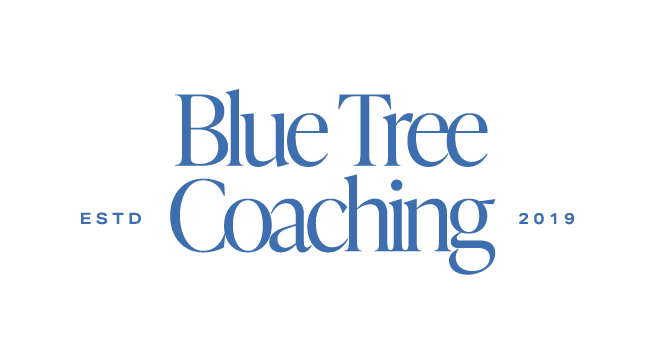CATEGORIES
“Discomfort is the price of admission to a meaningful life” -Susan David, PhD
Have you heard the term discomfort tolerance? It means, in essence, getting better at feeling uncomfortable. This is a critical skill that we all would do well to develop. To state the obvious, it’s not supposed to always feel good. And by “it,” I mean life, the human experience, and certainly the entrepreneurial journey. It’s really more of a 50/50 proposition. This is simply the nature of the world – parts of it are glorious, parts of it are downright ugly. In yoga we call this “complementary opposites,” and it applies to all of life. Without sorrow, we can’t truly know joy. Without darkness, we can’t truly appreciate light.
This idea is also supported by the latest neuroscientific research. Researcher and author Brene Brown talks about this a lot. When we blunt or numb, or as we call it in the coaching world “buffer” our negative feelings, we necessarily blunt our positive feelings as well. If we’re not willing to actually feel grief, we’re less able to actually feel joy.
Discomfort tolerance is really about our ability to sit with and experience our negative emotions without hiding from, resisting, or reacting to them. When we have high discomfort tolerance, we can sit with fear, or doubt, or uncertainty, and know that nothing has gone wrong. We can decide what to do with it, and what to make it mean.
If you’re trying to achieve something new in your life, or to adjust to a challenging life circumstance with skill and grace, you’re going to experience negative emotions. It’s inevitable. In fact, negative emotions are part of the deal whether we’re staying stagnant and complacent or whether we’re on to bigger things. So we might as well learn to deal with them more effectively.
Pema Chodron is an American Tibetan Buddhist nun and teacher. She’s authored many best-selling books (several of which line my bookshelf). When Things Fall Apart is one of her best known. In it she says this:
There’s a common misunderstanding among all the human beings who have ever been born on the earth that the best way to live is to try to avoid pain and just try to get comfortable.
Can you relate to this? I can. We are wired for comfort. Literally. That is exactly what the most primitive and ancient parts of our brains are designed to do. Why? Back in the days of our cavemen and women ancestors, comfort was extremely casually related to survival. Seeking pleasure, avoiding pain, and preserving energy was where it was at. These three things are actually referred to in modern times as the motivational triad: seek pleasure/avoid Pain/preserve Energy.
There is most certainly a time for comfort and pleasure. I would argue that this is as important as leaning into discomfort. Until and unless we take this to an extreme and get out of balance. Remember, we can think of this life as a 50/50 experience: sometimes wonderful, sometimes terrible. Thus, we should not be in a state of discomfort all the time. We need to balance this out with feeling good and experiencing self-care, however we define that elusive concept for ourselves. The research also bears out that we need downtime to replenish and recharge.
I know this from my decades as a runner. After a few days off of running, my runs feel lighter, stronger, and way more enjoyable. Most of the time. But if I push myself too hard day after day, my runs start to feel like junk. But at the same time, we can overdo the “self-care” thing too, and blow ourselves off, and give up when it gets hard.
We can look at the concept of discomfort tolerance as it applies to entrepreneurship. The statistics on entrepreneurial success are a little bit startling. Of all new businesses, only half make it to the five-year mark. While external factors such as market need and supply chain issues can account for some of this, what’s also true – and what I have seen more than I’d like to have – is that many entrepreneurs give up too soon. The going gets tough, and they get going.
I’ve seen this in the world of side hustles too. Many would-be side giggers almost start, or start in a half-ass kind of way, and then give up. Others go all in, proverbial guns blazing, and then turn around at the first sign of discomfort. If we can learn to tolerate the inevitable discomfort, so many more of us can succeed. Don’t you want to be part of that statistic?
Here’s the million dollar question: how do we grow our discomfort tolerance? We need to allow negative emotions. What the heck does that mean? This is an important question, because we’re not ever taught this important skill. The reason this is overlooked by the most well-meaning educators and parents (myself included) is because, as Chodron observed, we’re raised thinking and believing that comfort is the goal, not discomfort.
The Buddhists recognized an important truth about emotions. Like everything else in the natural world, they go through a three-phase process. They arise, they abide (which simply means they stay for a while), and they dissolve. Another way to say this is that everything changes. Feelings come, and they go. As long as we actually allow and process them, that is. Otherwise, negative emotions can stick around in our bodies and minds for years, even decades.
And here’s an important irony: the more practice we get at feeling our negative emotions, the less negative they actually feel!
I like to suggest that my clients set a timer for a minute. When they feel fear or dread or overwhelm arising, just sit down, feel it all the way from start to middle to end, and then even if it does not dissipate right away, go ahead and consider your emotional practice session over.
It’s like a little bit of exposure therapy. Not particularly enjoyable in the moment, but highly effective and the truth is, we all survive it.
Another thing to do when we are looking to move through and beyond negative emotions is to speak to ourselves and our feelings kindly and gently. This could sound like: oh hello self-doubt, old friend, I see you. You’re trying to keep me safe and I appreciate that. And now you can go. I’ve got a new friend: determination, or motivation, or courage, or whatever.
This might sound silly, but it works. Give it a try and let me know what you think. I’d really love to hear.

